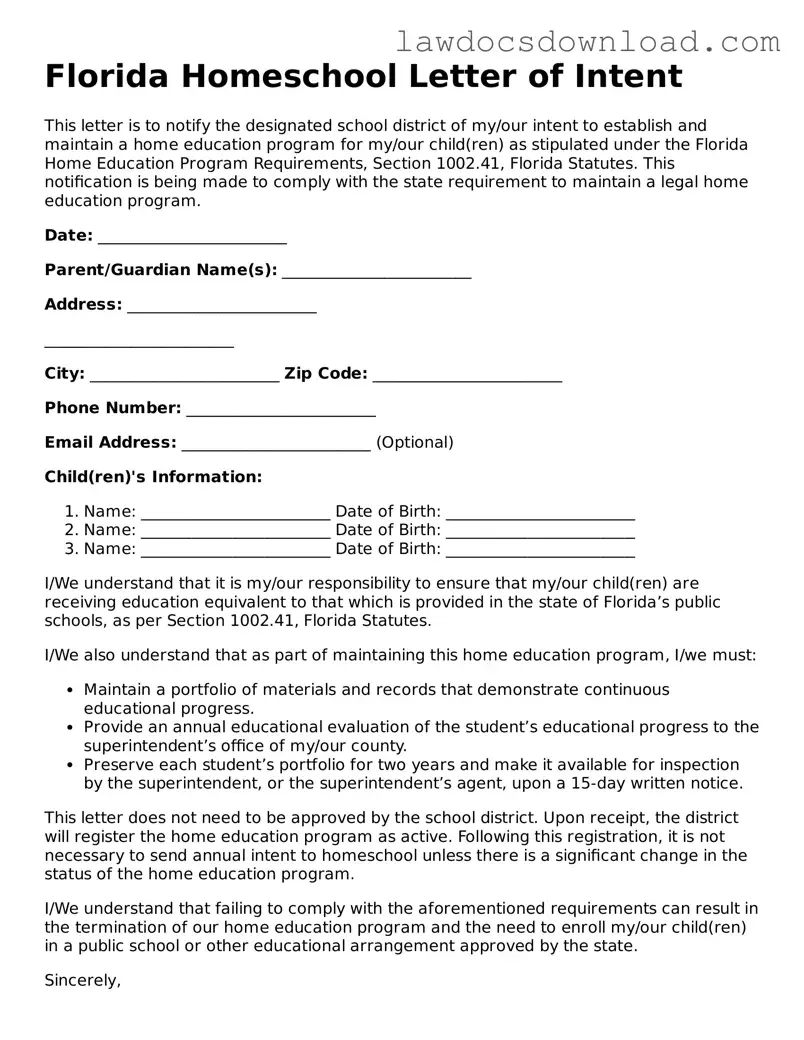Legal Florida Homeschool Letter of Intent Form
The Florida Homeschool Letter of Intent form is a crucial document that initiates the process of homeschooling in the state of Florida. By submitting this form, parents or guardians formally notify the relevant school district of their intent to homeschool their child or children. This step is mandatory for those choosing to educate their children outside the traditional school system, ensuring compliance with state education laws.
Launch Homeschool Letter of Intent Editor Here

Legal Florida Homeschool Letter of Intent Form
Launch Homeschool Letter of Intent Editor Here

Launch Homeschool Letter of Intent Editor Here
or
Free Homeschool Letter of Intent
Get this form done in minutes
Complete your Homeschool Letter of Intent online and download the final PDF.